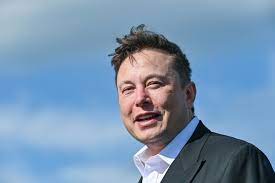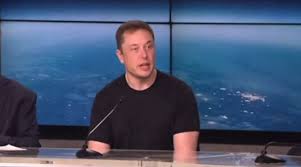Elon Musk Donates $5 Million to Support 23 Student Carbon Research Teams

Elon Musk Donates $5 Million to Support 23 Student Carbon Research Teams: Empowering the Next Generation of Environmental Leaders
1. A $5 Million Investment in the Future of Sustainability
In a significant move to support environmental research and foster the next generation of sustainability leaders, Elon Musk has pledged $5 million to fund 23 student-led carbon research teams. This donation, aimed at empowering students to tackle the global climate crisis, marks a major commitment from Musk to sustainability and climate change solutions. The funds will be used to support research projects focused on carbon capture, reduction technologies, and innovative approaches to minimizing the environmental impact of industries around the world.
Musk, whose companies Tesla, SpaceX, and others are at the forefront of technological advancements with sustainability at their core, has long been an advocate for addressing climate change. His focus on advancing clean energy and renewable technologies has positioned him as one of the most influential figures in the global push toward carbon neutrality. However, Musk’s latest initiative is different; it is a direct investment in the future of science and technology through education, providing young researchers the resources they need to make a meaningful impact in the fight against climate change.
In his announcement, Musk emphasized the importance of empowering students with the tools and funding to develop innovative solutions. “The future of our planet depends on the creativity and dedication of young minds who are passionate about solving the carbon crisis,” Musk said. “This initiative aims to support students who are working to turn groundbreaking research into real-world solutions that can make a difference.”
This $5 million donation comes as part of Musk’s ongoing efforts to leverage his wealth and influence to address climate-related challenges. By focusing on student-driven research teams, Musk is nurturing the future of sustainable technology and innovation, with the goal of accelerating the development of carbon reduction methods.
2. The Need for Student-Led Research in the Fight Against Climate Change
While there is widespread recognition of the urgent need to address climate change, the world’s progress toward carbon reduction goals remains slow. Government agencies, corporations, and environmental organizations are all working to develop and implement strategies to reduce global carbon emissions, but the scale of the challenge remains immense. To meet the global target of net-zero carbon emissions by 2050, more innovative and groundbreaking solutions are required.
This is where the importance of student-led research comes into play. Students, particularly those studying environmental science, engineering, and related fields, are uniquely positioned to bring fresh perspectives and new ideas to the table. Their passion for sustainability and willingness to challenge existing methods can lead to transformative breakthroughs. However, for many student researchers, access to funding and resources remains a significant barrier to progress.
The $5 million donation from Musk aims to address this issue by providing the 23 selected research teams with the financial support they need to pursue their projects. The funding will cover a wide range of research activities, including laboratory expenses, field studies, and the development of carbon reduction technologies. The donation is expected to open doors for students to engage in cutting-edge research that could lead to scalable solutions for carbon capture and climate change mitigation.
The decision to support student teams is a strategic one, as young researchers are often at the forefront of emerging technologies and new approaches to climate science. With fewer financial constraints than established institutions or large corporations, student-led teams can operate with more flexibility and creativity, enabling them to explore unconventional solutions to the carbon crisis. Additionally, by investing in student research, Musk is helping to build a pipeline of talent that will shape the future of the environmental industry.
3. The Research Teams: What They Aim to Achieve
The 23 student research teams receiving funding as part of Musk’s donation are tackling various aspects of carbon research, ranging from carbon capture technologies to renewable energy solutions. The diversity of the projects reflects the multifaceted nature of the climate crisis and the need for a wide range of approaches to address it.
One of the key areas of focus for many of the teams is carbon capture and storage (CCS). Carbon capture technologies aim to remove carbon dioxide from the atmosphere and store it in a way that prevents it from contributing to global warming. Several teams are exploring novel materials and chemical processes that could make carbon capture more efficient and cost-effective. Advances in CCS are critical to achieving carbon neutrality, as they offer a potential solution for industries that are difficult to decarbonize, such as cement and steel manufacturing.
Another area of research is direct air capture (DAC), which involves extracting CO2 directly from the atmosphere. DAC technologies have been gaining attention as a potential tool for reducing atmospheric CO2 levels, but scaling these technologies to a level that can make a significant impact remains a major challenge. Several student teams are working on developing more effective and affordable DAC systems, with the goal of making them commercially viable.
In addition to carbon capture, some teams are focused on carbon utilization, or finding ways to convert captured CO2 into useful products. This could include turning CO2 into chemicals, fuels, or even building materials. By creating value from waste carbon, these technologies could provide an economic incentive for widespread adoption and implementation.
Other teams are researching carbon-free energy sources, such as solar power, wind energy, and nuclear fusion, all of which can play a vital role in reducing the need for fossil fuels. These projects aim to improve the efficiency and affordability of renewable energy technologies, helping to accelerate the transition to a clean energy future.
Additionally, some teams are investigating sustainable agricultural practices that reduce the carbon footprint of food production. Agriculture is a significant contributor to greenhouse gas emissions, but sustainable farming techniques that prioritize soil health and reduce emissions could make a substantial impact on global carbon levels.
The projects being pursued by these student teams are diverse, but they all share the same goal: reducing the amount of carbon in the atmosphere and mitigating the effects of climate change. With Musk’s financial support, these students will be able to carry out their research and potentially develop innovative solutions that could have a lasting impact on the planet.
4. The Broader Impact: What Musk’s Donation Means for the Future of Climate Change Solutions
Elon Musk’s donation to support student carbon research is part of a broader trend of private sector involvement in solving global environmental challenges. As governments around the world struggle to make meaningful progress on climate change, many experts have called for greater involvement from the private sector and philanthropic organizations to accelerate innovation and fund cutting-edge research.
The $5 million donation is a clear indication that Musk believes in the power of innovation to address climate change. As the CEO of Tesla, Musk has already revolutionized the electric vehicle industry, making clean energy solutions more accessible and mainstream. Now, through this scholarship program, he is expanding his focus to include the next generation of scientists and researchers who will drive the future of sustainability.
Musk’s donation also highlights the importance of education and mentorship in addressing the climate crisis. By supporting student researchers, Musk is not only providing financial resources but also encouraging young minds to pursue careers in climate science and environmental technology. The experience and knowledge gained through these research projects will help shape the careers of tomorrow’s climate leaders, ensuring that the next generation is prepared to tackle the challenges of a rapidly changing world.
The ripple effect of Musk’s donation could also extend beyond the 23 research teams. As these projects gain visibility and recognition, they may inspire other philanthropists, institutions, and corporations to invest in similar initiatives. By fostering a culture of innovation and collaboration in the fight against climate change, Musk is helping to create a network of researchers and entrepreneurs dedicated to solving the most pressing environmental issues of our time.
Ultimately, Musk’s donation is a reminder that innovation, creativity, and collaboration are key to addressing the climate crisis. The solutions to global environmental challenges may not come from governments or large corporations alone; they may come from the minds of young researchers, empowered to develop new technologies and approaches that can transform the world. Musk’s support for these student-led teams is an investment in the future of sustainability, and it demonstrates his commitment to using his resources to create positive change.
Conclusion: A New Era of Climate Change Solutions
Elon Musk’s $5 million donation to support 23 student carbon research teams is a significant step forward in the global fight against climate change. By providing funding to students who are working on innovative carbon reduction technologies and sustainability solutions, Musk is helping to foster a new generation of environmental leaders who will play a critical role in shaping the future of our planet.
The research being conducted by these student teams could lead to breakthroughs that will have a lasting impact on the world’s ability to reduce carbon emissions and mitigate the effects of climate change. Musk’s decision to invest in student-driven research underscores the importance of innovation and education in solving global environmental challenges.
As the world continues to confront the urgency of the climate crisis, private-sector involvement and investment in research will be crucial to accelerating progress. Through his $5 million donation, Musk has set a powerful example of how philanthropists, corporations, and individuals can contribute to creating a more sustainable future.











